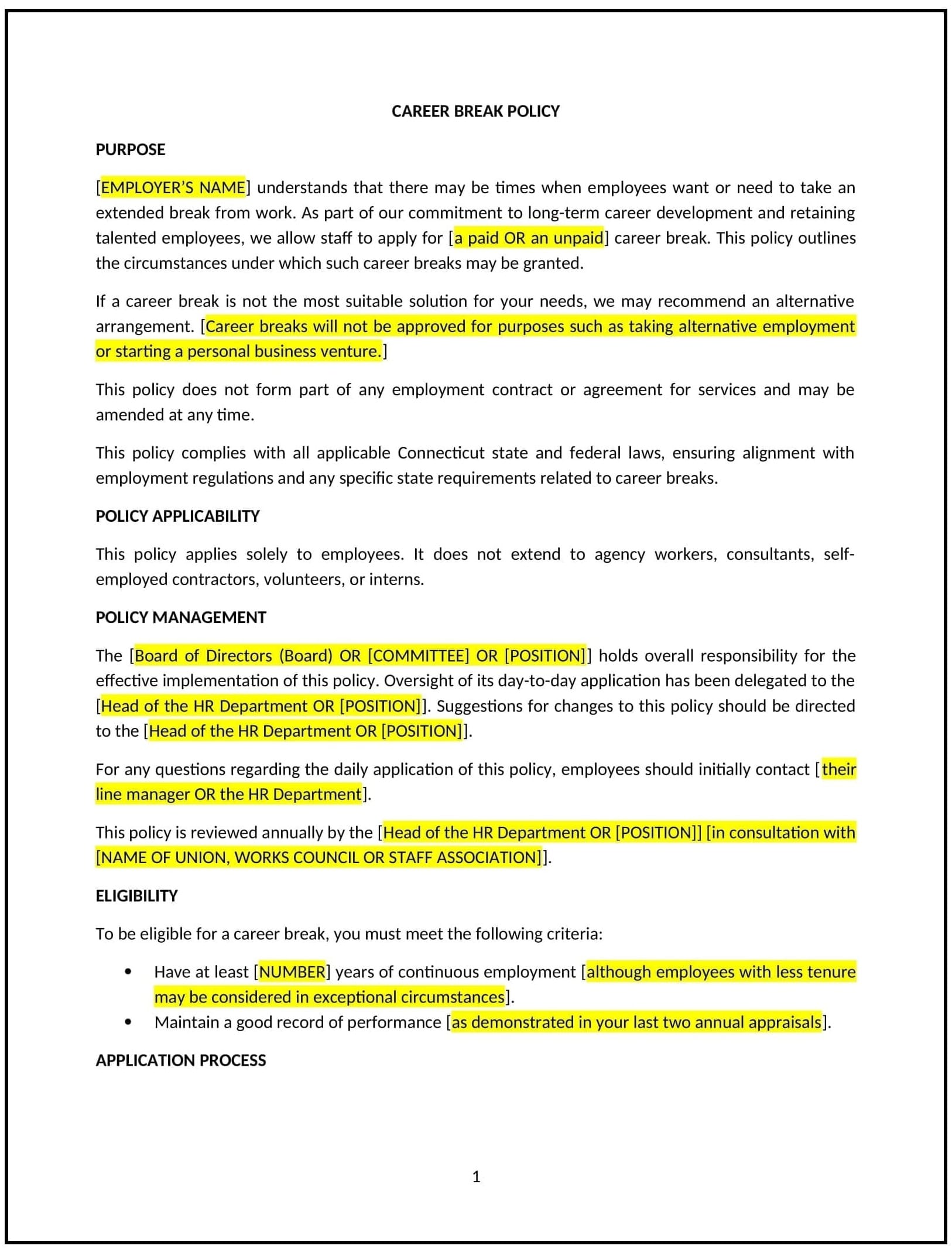Got contracts to review? While you're here for policies, let Cobrief make contract review effortless—start your free review now.

Customize this template for free
Career break policy (Connecticut)
A career break policy helps Connecticut businesses provide employees with the option to take an extended, unpaid break from work for personal reasons, such as travel, further education, or family matters. This policy outlines the terms and conditions for requesting a career break, including eligibility, duration, and the process for applying, while ensuring that the business is protected and can plan for employee absences.
By implementing this policy, businesses can offer flexibility and support for employee well-being while maintaining operational continuity.
How to use this career break policy (Connecticut)
- Define eligibility: Specify which employees are eligible for a career break, such as full-time employees with a certain length of service.
- Outline the application process: Provide clear instructions on how employees should apply for a career break, including the required notice period and any supporting documentation (e.g., travel plans, personal statement).
- Set the duration: Clearly specify the maximum length of a career break, such as six months to one year, and outline any options for extending the break.
- Address benefits and compensation: Clarify that career breaks are typically unpaid, and provide information about how benefits (e.g., health insurance) will be handled during the break.
- Define return-to-work conditions: Specify the employee’s right to return to work at the end of the career break and the process for re-entry into the company.
Benefits of using this career break policy (Connecticut)
This policy offers several benefits for Connecticut businesses:
- Promotes work-life balance: Provides employees with the opportunity to take a break for personal growth or family matters, improving overall employee satisfaction.
- Enhances retention: Allows employees to step away from work without the need to leave the company permanently, potentially reducing turnover.
- Supports employee development: Encourages employees to pursue educational or personal development opportunities, which can benefit the business in the long term.
- Increases flexibility: Enables the business to accommodate employees' personal needs while maintaining a level of workforce flexibility.
- Reduces burnout: Helps prevent employee burnout by offering an opportunity for rest and recovery, improving productivity upon their return.
Tips for using this career break policy (Connecticut)
- Communicate clearly: Ensure all employees are aware of the policy and understand how to apply for a career break, including eligibility criteria and timelines.
- Plan for coverage: Develop a plan to manage the employee's workload during their absence, such as redistributing tasks or hiring temporary help.
- Maintain flexibility: Be open to extending the break or adjusting the terms based on the employee’s needs and business circumstances.
- Monitor the return process: Stay in touch with employees during their break to ensure a smooth transition when they return to work.
- Review periodically: Update the policy as needed to reflect changes in Connecticut laws or company practices.